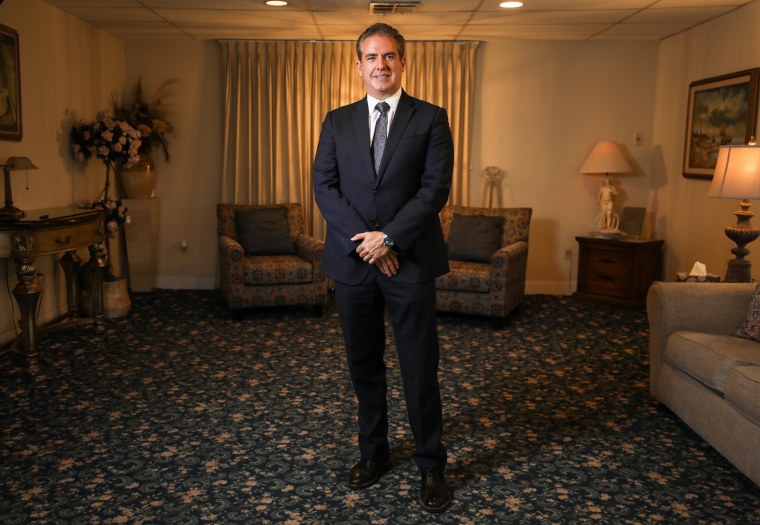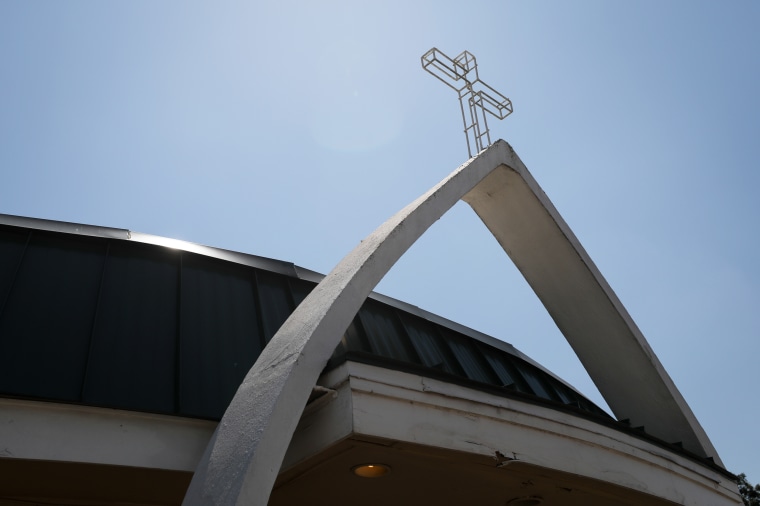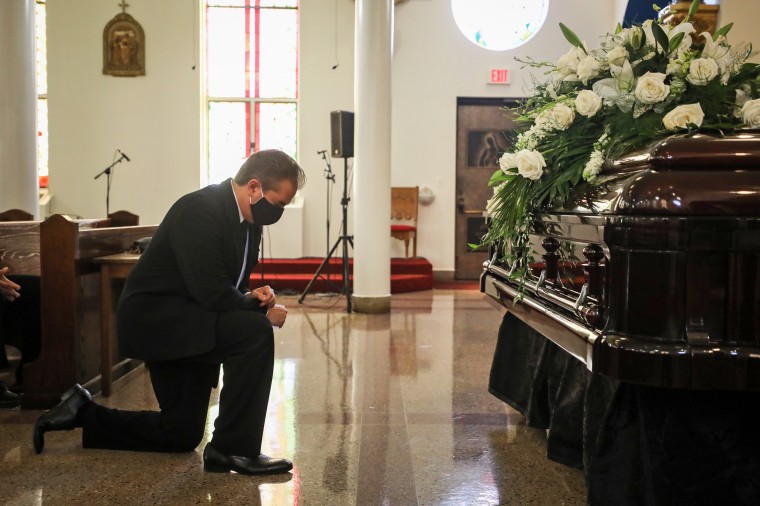Charles Villaseñor, owner of Mission Funeral Home in Austin, Texas, witnessed the wrath of Covid-19 as family after family needed his compassion and services. Then it was his turn.
Last summer, as he was helping many families say goodbye to loved ones amid a surge of deaths in Texas, the family's matriarch, Lois Villaseñor, the daughter of farmworkers, who had founded the funeral home with her husband, succumbed to the coronavirus and all its afflictions.
She was one of 265 people who died July 28 in Austin.
“I’ve seen what this is on the front lines, and this is real, and this is something we have to be very careful about," Villaseñor said. "Losing my mother from it, what better way to know how serious this is than when you lose a loved one?"
A year since Austin reported its first confirmed Covid-19 case on March 13, 2020, the city is resisting Texas Gov. Greg Abbott's decision to abandon a mask-wearing mandate and to increase businesses' capacity to allow 100 percent.
State Attorney General Ken Paxton is suing Austin over its decision to continue to require mask-wearing.
Villaseñor said his funeral homes will continue to follow guidelines and protocols of the Centers for Disease Control and Prevention until there are real, tangible changes, including increased vaccination in the Latino community.
Villaseñor said that after the bird flu epidemic in the early 2000s, he prepared for future pandemics by stocking up on protective equipment. By February 2020, he was already making plans for how to deal with potential Covid-19 deaths.
But the scourge of Covid-19 eclipsed his careful plans.
"I didn't expect things to turn this way, as they had in July. In May, we had Easter. Everything was very calm, very 'tranquilo.' And then from that point, we start to see an uptick. ... In July, things changed tremendously," he said.

Lois Villaseñor was 87 when she died. She had home health care, so Villaseñor and other family members thought she would have been safe.
Over those summer months, the cause of death showing up on the funeral home's digital feed alongside the names of the deceased repeatedly listed the same thing: "Covid-19, Covid-19, C-19,” Villaseñor said.
“It overtook us. We understood it was coming. We understood the dangers. But I did not realize just how dangerous Covid was,” he said.
“I was like, how are we going to do this? This keeps coming more and more. It just didn’t stop,” he said. “We work seven days a week and long days to make sure everyone has a chance to have a meaningful service.”
Mission Funeral Home has four locations, one of them in East Austin, where his parents first opened the business, and another in nearby San Marcos. His parents opened the home in July 1959 for Latinos who, at the time, mainly held vigils and services at home.
Implementing changes, some permanent
As Covid-19 deaths increased, the funeral home had space to impose social distancing in its different locations and put distance between families with services at the same times. It also allowed space to handle preparations of the deceased.
Villaseñor said he saw the use of refrigeration trucks in New York and in some Texas cities to store those who had died. He said he has been determined to avoid that to lessen families’ trauma.
“A lot of times, families were very quiet about everything. At the very beginning, families were almost ashamed that it happened,” he said.
He witnessed how more and more families got serious about Covid-19 precautions, even as they were figuring out how to honor their deceased relatives.
"Some would come and thank us for taking the time for the precautions, but also for waiting for them to get out of quarantine, so they could come to the funeral home and say goodbye," he said.
Villaseñor said keeping the Covid-19 practices in place are important because his funeral home is used largely by Latinos, who have been disproportionately affected by Covid-19.
As of Tuesday, Hispanics were 46 percent of reported Covid-19 cases, according to Austin Public Health data, as well as 49 percent of deaths and 45 percent of hospitalizations. Austin is about 34 percent Latino.
"It's hard to imagine the grief and loss that disproportionately hit the Latino community," Villaseñor said. "That's the part that really strikes me, that everything we believe in, everything that we do, traditions that we follow, including myself and the families I'm involved with, they forever changed."

Villaseñor noted that large family gatherings — "the way that we respect our loved ones and show our condolences" — are no longer taking place.
“We need to get the Latino community vaccinated. On top of that, we need to make sure all front-line workers are vaccinated,” Villaseñor said. “This is something we need to be very careful about.”
The pandemic has been emotionally and physically draining on the funeral home’s workers, who are handling 80 funerals in one month.
It also has changed a lot about the industry.
Villaseñor looks forward to when some of those changes disappear, but not all of them.
The pandemic forced the funeral home to resort to livestreaming funerals — which he started with a laptop and phones — and it will continue the practice, which allows people who otherwise can't attend in person to attend virtually. Many Latino families that have relatives in Mexico or other countries can livestream services for those family members.
“I have hope and I think we are going to come out of this and we are going to be stronger,” Villaseñor said. “I know we suffered a lot of losses here, but at the same time, we’ve helped each other in a lot of ways.”

